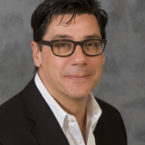Abstract
Rationale: Extremely preterm infants develop bronchopulmonary dysplasia (BPD), a chronic lung injury that lacks effective treatment. TSP-1 (thrombospondin-1) is an antiangiogenic protein that activates TGF-β1 (transforming growth factor-β1), a cytokine strongly linked to both experimental and human BPD.
Objectives: 1) To examine effects of inhibiting TSP-1–mediated TGF-β1 activation (LSKL [leucine–serine–lysine–leucine]) in neonatal rats with bleomycin-induced lung injury; 2) to examine effects of a TSP-1 mimic (ABT-510) on lung morphology; and 3) to determine whether TSP-1 and related signaling peptides are increased in lungs of human preterm infants at risk for BPD.
Methods: From Postnatal Days 1 to 14, rat pups received daily intraperitoneal bleomycin (1 mg/kg) or vehicle and were treated with daily subcutaneous LSKL (20 mg/kg) or vehicle alone. Separate animals were treated with vehicle or ABT-510 (30 mg/kg/d). Paraffin-embedded lung tissues from 47 autopsies (controls; death <28 d, n = 30 and BPD at risk; death ⩾28 d, n = 17) performed on infants born <29 completed weeks’ gestation were semiquantified for injury markers (collagen, macrophages, and 3-nitrotyrosine), TSP-1, and TGF-β1.
Measurements and Main Results: Bleomycin or ABT-510 increased lung TGF-β1 activity and macrophage influx, caused pulmonary hypertension, and led to alveolar and microvascular hypoplasia. Treatment with LSKL partially prevented abnormal lung morphology secondary to bleomycin. Lungs from human infants at risk for BPD had increased contents of TSP-1 and TGF-β1 when compared with controls. TGF-β1 content correlated with markers of lung injury.
Conclusions: TSP-1 inhibits alveologenesis in neonatal rats, in part via the upregulated activity of TGF-β1. Observations in human lungs suggest a similar pathogenic role for TSP-1 in infants at risk for BPD.
Researchers
-
Behzad Yeganeh
Associate Scientist, CHEO Research Institute
-
Robert P Jankov
Senior Scientist, CHEO Research Institute


